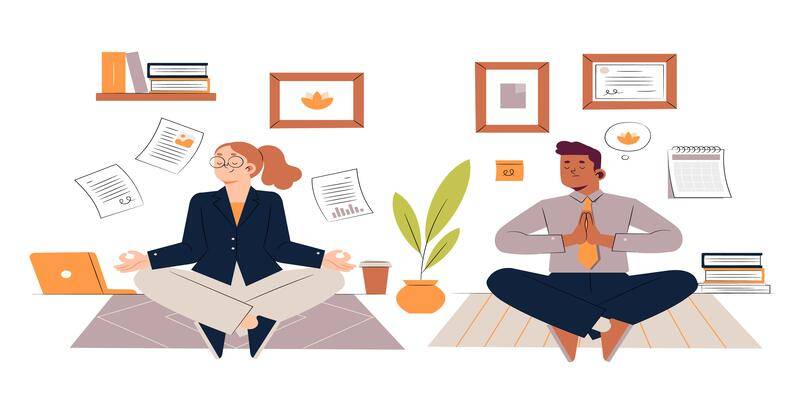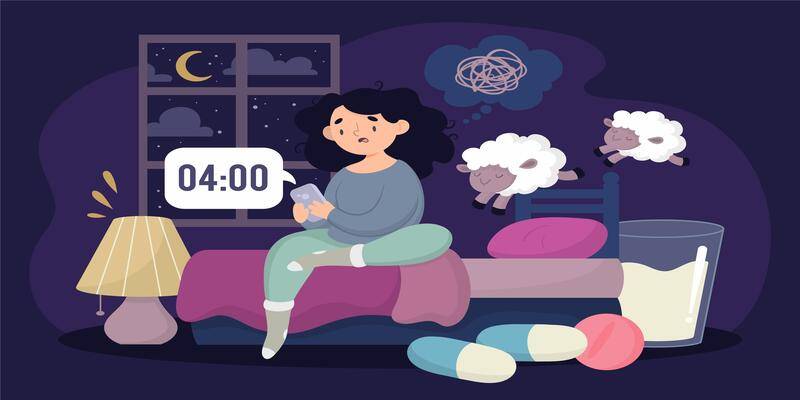Uncover the power of mindfulness at work

I had never heard the term mindfulness until I got diagnosed with thyroid. When I saw my report, I was amazed, and I started digging into this ailment and why it happened. Eventually, I discovered that its root cause is stress. An unstable job that demanded a lot physically as well as mentally, along with several responsibilities to fulfil, led to a stressful environment. I had adopted unhealthy habits, including my eating and sleeping patterns. Hence, the diagnosis worked as an unpleasant awakening. That is where I learnt about the power of mindfulness at work and in my personal life.
I read the book ‘The Power of Now’ by Eckhart Tolle. It pushed me to practice mindfulness, but unfortunately, I was not very consistent. Nearly two years later, I got diagnosed with PCOD (polycystic ovarian disease), another hormonal disease. And, guess what? One of the main causes of that, too, is stress. I was devastated. I started feeling dejected, my productivity dropped, and life felt burdened with challenges.
Someone back then suggested I should meditate, and what other option did I have but to try? As I started practising meditation, I decided that I had to change my life for the good. When I have the power to heal others, I can heal myself too. So, along with meditation and a few other holistic wellness practices, I started my mindfulness journey once again. Since then, the results have been overwhelming in a positive way to say the least. Moreover, it is not just me, there are many who experience stress on a daily basis and are unable to cope up.
If it is a hard relate for someone who is reading this feature, then continue reading. I assure that the power of mindfulness, the practice of being fully present and engaged in the moment, can transform an individual.
Benefits of mindfulness
Improved focus
Most of us are multitasking which affects our focus and the quality of work that is delivered. Mindfulness trains the brain to focus on one thing at a particular time, reducing the tendency for multitasking and distractions. Improved focus can increase the productivity and efficiency of our work, be it personal or professional.
Emotional regulation
By becoming more aware of their emotions and feelings, one can stop dwelling on them and make effective decisions even in stressful situations. Mindfulness at work and at other places helps one avoid impulsive reactions, improves their interpersonal relationships and workplace dynamics.
Effective decision-making
Due to a lot of pending work, the mind, consciously or subconsciously, is always switching from one task to another. By being mindful, an individual will be attentive in the present moment and listen to each and everything that others are sharing. In return, this helps in better decision-making, enabling individuals to consider all aspects of a situation and make well-informed choices.
No stress and anxiety
Mindfulness, as I mentioned in the beginning, is one of the most effective ways to reduce stress and anxiety. Everything including journalling, affirming, and meditating revolves around being in the present moment because most of the given problems are either in the past or assumed future. Being in the moment is divine where there is no stress or anxiety.
Better creativity
When one is aware, they focus on what they need to do and how they can execute the tasks creatively. As soon as an individual’s mind becomes occupied with other things, they tend to lose focus. Hence, they can’t obtain the desired results as no creativity can stem from such a scenario. It is true that the best way to capture moments is to pay attention. This is how one leverages the power of mindfulness. By adopting this technique, one can excel in any desired field. In this article, I’ll share a few tips as to how one can practice mindfulness at work.
Mindfulness at workplace
Mindful intention
Before starting any work, put out an intention regarding how one would feel once they have finished the task. For most of us, our day at work commences with a lot of stress. Now, it is important to remember that energy grows where focus goes. If an individual channelises their energy on stressful factors, more stressful experiences are likely to happen. Start the work with happy thoughts, be grateful and satisfied with whatever is achieved. If someone’s focus shifts towards negative emotions, they should remind themselves about their initial intention when they undertook the task and work calmly towards the desired goals.
Mindful breaks
In this digital era, one tends to move from one digital application to another in the blink of an eye, inadvertently avoiding being in the present. Taking a mindful break is imperative for improved focus and desired results. Even a few minutes of deep breathing or a quick meditation session can reset the mind and reduce stress. One should also encourage their peers to have mindful breaks as it will help everyone in delivering quality work.
Mindful meetings
There have been numerous instances when I have been so lost in my thoughts or been occupied on my phone that I ended up missing the key pointers in a meeting. The reason why this happens is because the individual is not paying attention and is easily distracted by other factors. To avoid this, take a deep breath and keep the phone aside when in a meeting. This practice fosters better listening and leads to more productive discussions.
Mindful work
When one is swamped with work, they should use the 45-15 technique which means 45 minutes of work without any distractions followed by 15 minutes of mindful break. Repeat this cycle to significantly improve the quality of work. Constant distractions can extend tasks that hardly take time into a full day’s effort.
Mindful end of the day
It’s crucial to end the day with gratitude. Ending a day with complaints, anger, or stress can perpetuate a negative cycle. To break free from this pattern, one should be mindful of how they conclude their day, ensuring that the next day begins on a positive note.
The power of mindfulness at work extends beyond individual well-being, resulting in improved decision making and enhanced workplace dynamics. By integrating such practices into the workplace, organisations can develop a more balanced, resilient, and innovative workforce. Also, individuals can develop a further productive and meaningful work-life that is wholesome.






